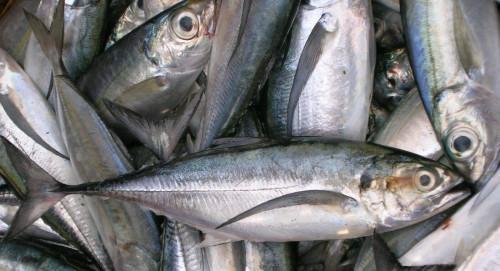
Yaoundé - 27 April 2024 -
Fish
Cameroon: Fish production grew by 80,000 tons between 2011 and 2016

(Business in Cameroon) - Between 2011 and 2016, fish production in Cameroon increased by 80,000 tons from 205,000 tons to 285,000 tons, Dr. Taiga the Minister of Livestock, Fisheries and Animal Industries (Minepia) announced.
This improvement, thanks to the development of aquaculture, is however slowed by the influence of foreign fishermen in this sector, who often export a large part of production, after sometimes illegal fishing on the Cameroonian coast. Due to this situation, Cameroon remains a net importer of fish products, especially fish, despite its potential.
Let’s note that local operators spend about CFA100 billion in fish import every year.
BRM
Mags frontpage
- Most read 7 days
- shared 1 month
- read 1 month
next
prev






























